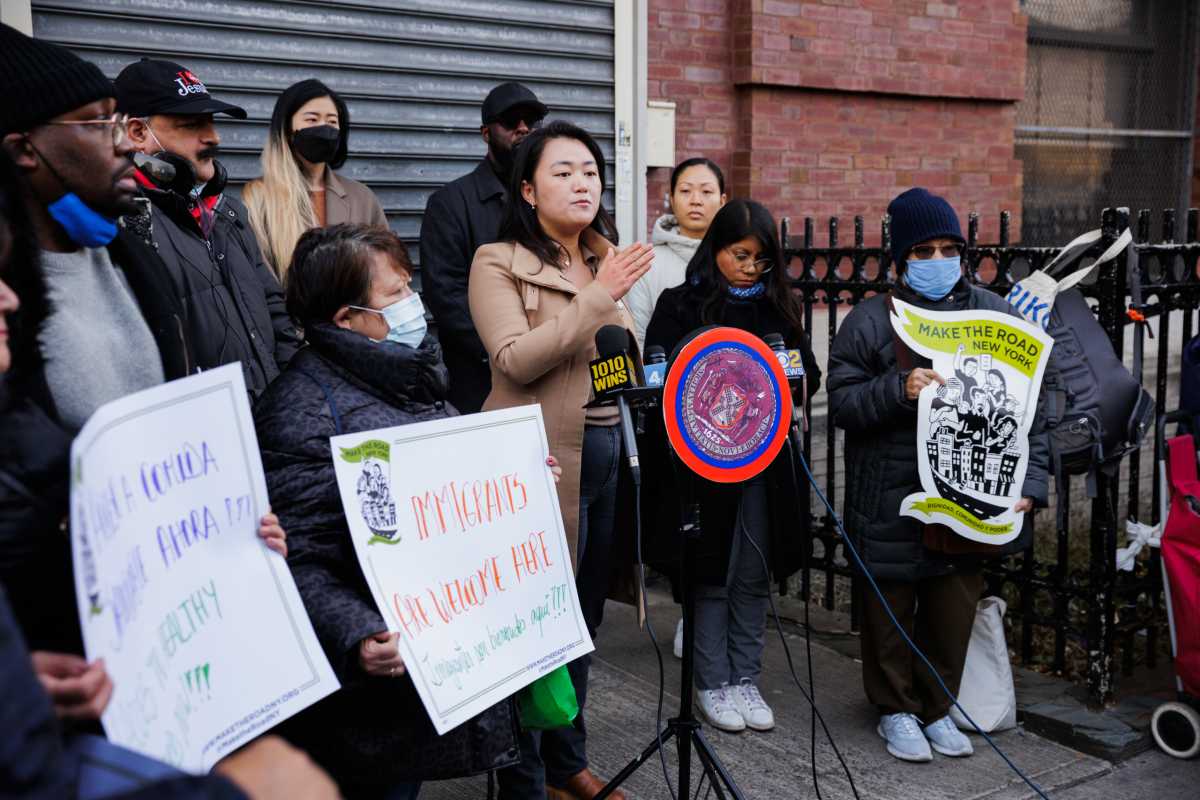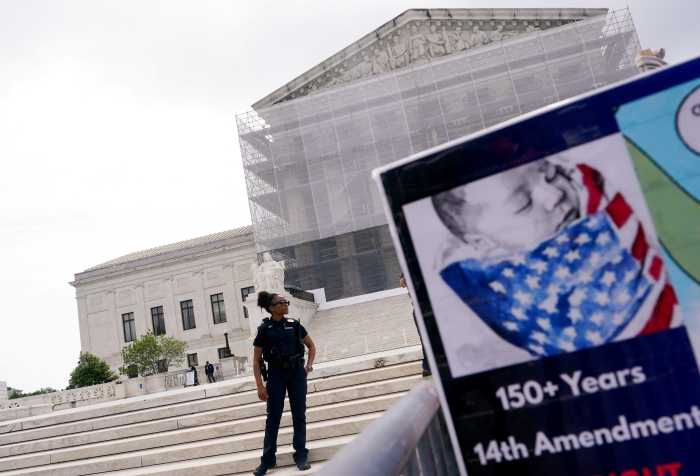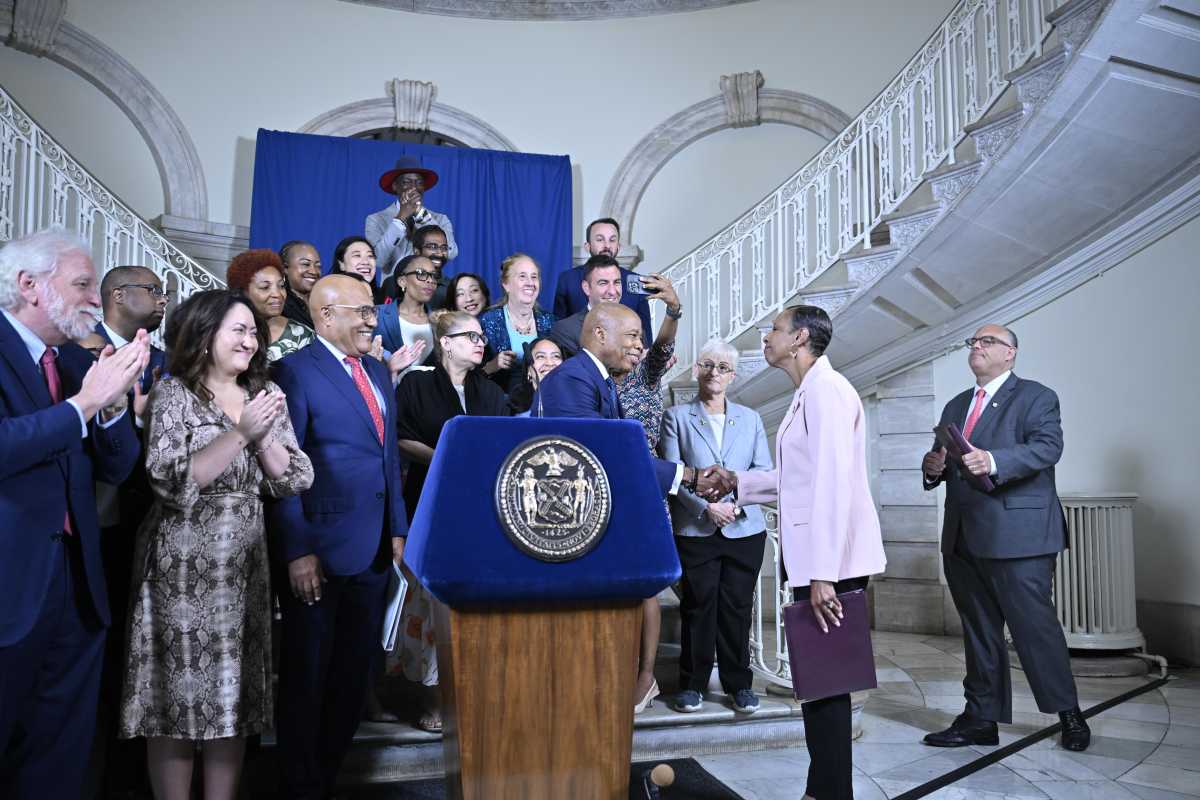Councilwoman Julie Won and community advocates celebrated the passage of her legislation to greatly expand language access for immigrant New Yorkers.
Intro 136-B will create a resource guide of community-based organizations to provide translation and interpretation services that are culturally competent, in the correct language and dialect and specific to New York City, while Intro 700-A will require city agencies to translate written materials that they distribute when enforcing city laws or carrying out compliance actions.
Won began drafting the legislation just after she took office in January after lives were lost in her district when warnings about flooding from Hurricane Ida were distributed primarily in English. One day after her bills were passed in the City Council, Won was in Dutch Kills where a second migrant this year took their life at a shelter in Queens due to a lack of linguistically and culturally competent mental health services.
These bills and additional funding secured by Won are the start of a new language access paradigm that could center community organizations that speak the language and understand the needs of those living in and coming to New York City.
“As our city continues to welcome thousands of new migrants and refugees with the end of Title 42, it’s critical to provide culturally competent language translations and interpretation services to our new neighbors,” Won said. “My bills, Intro 136 and Intro 700, will expand language access for vulnerable populations so that our immigrant neighbors and business owners have access to critical information in their own languages. We have secured $5 million in funding to establish the first language access co-op in the country, as well as a Community Interpreter Bank in partnership with the Language Access Coalition.”
Won added that the funding is foundational in creating a city that is linguistically accessible to all residents, especially those who speak limited diffusion languages and have never engaged in government services before.
“New Yorkers speak hundreds of different languages, so it’s important that crucial city services and common documents are provided in their preferred languages,” Speaker Adrienne Adams said. “With the passage of legislation championed by the Council and proposed in my State of the City address, our immigrant communities will be better served and supported by the city government. The Council will continue to advance efforts that ensure all New Yorkers have access to the language services and resources they need to thrive.”
The language access legislative package passed by the Council on Dec. 21 included two measures sponsored by Flushing Councilwoman Sandra Ung. Intro 697-A will ensure that city agencies are prepared to serve large populations that are migrating to New York City and do not speak one of the designated citywide languages. Many of them have been forced to leave their home countries, fleeing dangerous and even deadly situations.
“My bill would ensure that the city is providing language services beyond the citywide designated languages in neighborhoods where people in protected communities are building new ones,” Ung said. “As a beacon for individuals from across the world, the United States welcomes those who would seek asylum or refuge from war, famine and other tragedies. It is incumbent on us as a city to ensure that those individuals are receiving services in the languages they speak.”
Immigrant New Yorkers comprise more than 30% of the city’s workforce and own roughly one-half of the city’s small businesses but many immigrant small business owners do not speak English as their primary language, making interactions with the city difficult to navigate. Intro 699-A would require the Business Owners Bill of Rights and the Food Service Establishment Code of Conduct (documents produced by the city that inform small business owners of their rights during inspections and other enforcement activities) to be translated into additional languages and include additional information about language access services provided by the city.
“For small business owners who are focused on their day-to-day operations, staying knowledgeable of and complying with the myriad rules and regulations imposed by the city can be a challenge,” Ung said. “But for business owners with limited English proficiency, it can be an especially daunting task. Intro 699-A will help our immigrant entrepreneurs better understand their rights and responsibilities by requiring citywide agencies to communicate with them in their preferred language. Immigrant-owned small businesses are the backbone of the city’s economy, and these efforts to expand language access will remove another barrier to their success.”




































